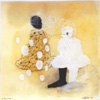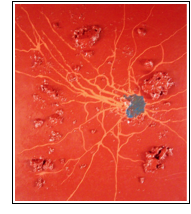Les médias électroniques, incluant Internet, ont des effets plus néfastes sur la santé des enfants et des adolescents qu’on ne le croyait. Un imposant dossier de la revue Archives of Pediatrics & Adolescent Medicine jette un regard plutôt sombre sur la capacité des jeunes à s’adapter au bombardement des médias (Fox News : Media Exposure Linked to Child, Teen Health, Behavior Problems).
À la lecture du reportage, Fernette et Brock Eide résument ainsi les ravages de la télévision :
la télé en solitaire : moins de temps passé avec les amis
la violence à la télé : plus d’agressivité chez les jeunes
la télé (même éducative) chez les enfants du préscolaire : excès de poids
plus de télé : sexualité précoce
plus de télé : plus faible probabilité d’obtenir un diplôme universitaire
la télé dans la chambre : performance inférieure en mathématiques, lecture, et langue dès la 3e année
Quoique la chaîne Fox News aime donner dans le sensationnalisme, voici néanmoins les faits saillants de son reportage sur trois des articles du dossier publié dans Archives of Pediatrics & Adolescent Medicine :
From obesity and social isolation to early sexual initiation and aggressive and violent behavior, 15 new studies link exposure to media images with a broad range of negative health, behavior and lifestyle issues in children and teens.
The studies found that the harm begins early in the preschool years and continues through adolescence.
Electronic media « are among the most profound influences on children in this country » and that « this intersects with many other issues that are critically important to child health, including violence, obesity, tobacco/alcohol use, and risky sexual behaviors. »
Those who watched more than two hours of television a day were 35 percent more likely to have had sex.
If sex-disapproving parents didn’t monitor their teens’ TV viewing, more than two hours a day of TV upped a teen’s odds of sexual initiation by 250 percent.
The more time kids spend watching violent TV programs, the less time they spend with their friends. This isn’t true for nonviolent programs.
The more time kids spend watching TV with friends, the more time they spend doing other things with their friends.
Violent TV programs are known to make kids more aggressive. When kids watch violent TV by themselves, their aggressive behavior makes it harder for them to have friends. So what do they do? They watch more TV — becoming even more socially isolated, and even angrier. [...] This may be where many bullies are born.
3-year-olds were three times more likely to be overweight if they spent two or more hours a day in a room with a TV on.
Par ricochet :
Facteurs de réussite scolaire
Les technologies comme facteur d’obésité
De l’agressivité des enfants québécois
Les TIC et l’émancipation sexuelle
La télévision n’affaiblit pas les résultats ; oui, mais…
Pas de télé pour les bébés
 N’écoute les conseils de personne, sinon du vent qui passe et nous raconte les histoires du monde. (Claude Debussy)
N’écoute les conseils de personne, sinon du vent qui passe et nous raconte les histoires du monde. (Claude Debussy)










